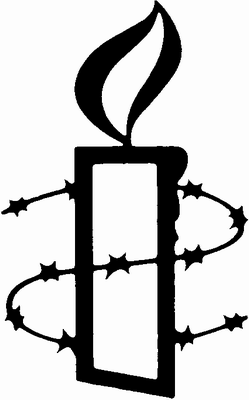Muslim Leaders' "Common Word" Letter
This week's letter, "A Common Word Between Us and You," by 138 of the world's most powerful Muslim clerics, scholars and intellectuals to leaders of the worldwide Church is being hailed by many as something of a miracle. However, such a response is not just overly optimistic but hopelessly naive.
In a display of supposedly unprecedented unity, the letter calls for peace between Christians and Muslims, arguing that the most fundamental tenets of Islam and Christianity are identical: love of one (and the same) God, and love of one's neighbour.
There are two crucial points to make in response. Firstly, the Muslims who penned the 29-page statement are in fact seeking a one-way dialogue on their own terms: "As Muslims, we say to Christians that we are not against them and that Islam is not against them - so long as they do not wage war against Muslims on account of their religion, oppress them and drive them out of their homes." Yet, as the Bishop of Rochester, Dr Michael Nazir-Ali, quoted by Archbishop Cranmer, rightly notes:
"What the Qur’an condemns, we do not believe. Whatever our doctrine of God, there are fundamental issues that must be addressed, such as refugees fleeing because of their faith and because of persecution ... But what I would stress is that dialogue between partners must be conducted in the integrity of each faith. One partner cannot dictate the terms on which dialogue must be conducted ... We may disagree about the nature of God but there are many other important areas of dialogue as well. There is justice, compassion, fundamental freedom, freedom to express beliefs, persecution of peoples. All these are matters of dialogue. Only one of them, the need for peace, is mentioned here."Secondly, there is more to Islam than simply "peace" — there is also "jihad." And to quote the new Baroness Cox biography, "Eyewitness to a broken world" by Lela Gilbert:
"A key development in the concept of jihad is contained in this verse in the Koran:The most fundamental tenets of Christianity have given rise to Western democracy as we know it. Yet the most fundamental tenets of Islam set it on a course of conflict with what we all believe (believers and unbelievers alike) on a whole range of human rights issues, from the freedom of religion to equality of the sexes. As Baroness Cox warned earlier this year, "The time has come to draw a line in the sand: to say that, while we in Britain value cultural diversity and enshrine the principle of tolerance, we must also ensure that such values and principles are not used in ways that destroy the fundamental freedoms on which our democracy is built."
Fight against those who believe not in Allah, nor the Last day, nor hold that forbidden which has been forbidden by Allah and His Prophet, nor acknowledge the religion of truth (i.e. Islam) among the People of the Book (Jews and Christians), until they pay the jizya (tax) with willing submission, and feel themselves subdued. (Sura 9:29, Medina)
... It must be noted that there are other verses in the Koran that speak of peace and respect for other people, especially "People of the Book" — Jews and Christians... However, traditional Islamic teaching has resolved any inconsistency between the verses of peace and the verses of war by adopting the principle of "abrogation", whereby the later revelations of the Prophet abrogate, or override, the earlier revelations. Unfortunately, this means that the more aggressive militaristic interpretations of jihad, associated with violence and terrorism, prevails over peaceable interpretations.

 Today's unveiling of the former South African President's statue in Parliament Square affords the opportunity to ask what the distinction is between a freedom fighter and a terrorist.
Today's unveiling of the former South African President's statue in Parliament Square affords the opportunity to ask what the distinction is between a freedom fighter and a terrorist.


![Today's anti-government rally in Izmir [Credit: insurancebroadcasting.com]](http://www.insurancebroadcasting.com/051507-p8.jpg) On the day that hundreds of thousands
On the day that hundreds of thousands  "Disagree from time to time we may; united we must always remain."
"Disagree from time to time we may; united we must always remain."
